Are you thinking of selling your digital products but don’t know where to start? Don’t worry; we’ve got you covered.
We’ve researched and compared some great platforms that help you sell digital products without needing a website of your own.
Starting an online business might sound complicated, but it’s really about knowing what you want to sell and finding the right place to do it.
From offering services like writing, design, or even marketing to selling things like eBooks and digital products, there are special places on the internet where you can do all of this without setting up a whole website.
If you’re thinking about selling online, it’s important to have a safe and well-managed place for your products to be available.
You’ll also want the place where you sell to look nice and be easy to use. Some platforms can be used directly on your website, while others provide links and tools that can be added separately.
Our list includes platforms that can be used with or without your own website, making it simpler to get started with selling your creations online.
So let’s dive in.
1. Vendblue
Best platform for beginners looking to sell online courses and digital downloads.
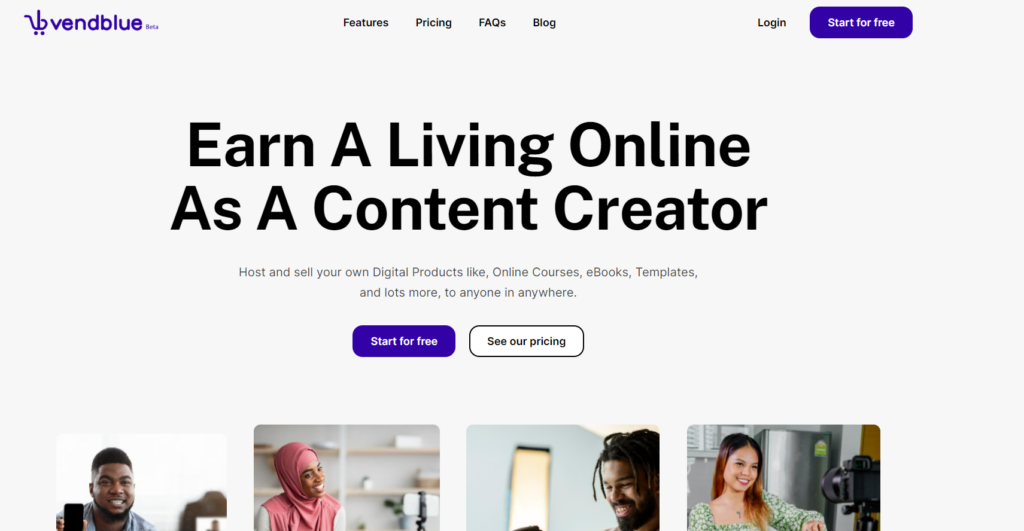
VendBlue is your go-to eCommerce platform, tailor-made for content creators and online entrepreneurs.
It’s your hub for selling any type of digital products like eBooks and online courses, and we’re always cooking up new features, like hosting virtual events and one-on-one sessions.
With VendBlue, you get a bunch of useful services like handling your products, tracking analytics, managing payments, and more. You don’t have to be a tech wizard to use it!
- pros: It’s absolutely free to use, and they only take a small 5% cut when you make a sale.
- Easy to use.
- Vendblue transfers your earnings straight to your bank account.
- cons: Built mainly for Africans
2. Gumroad
Best platform to sell digital downloads
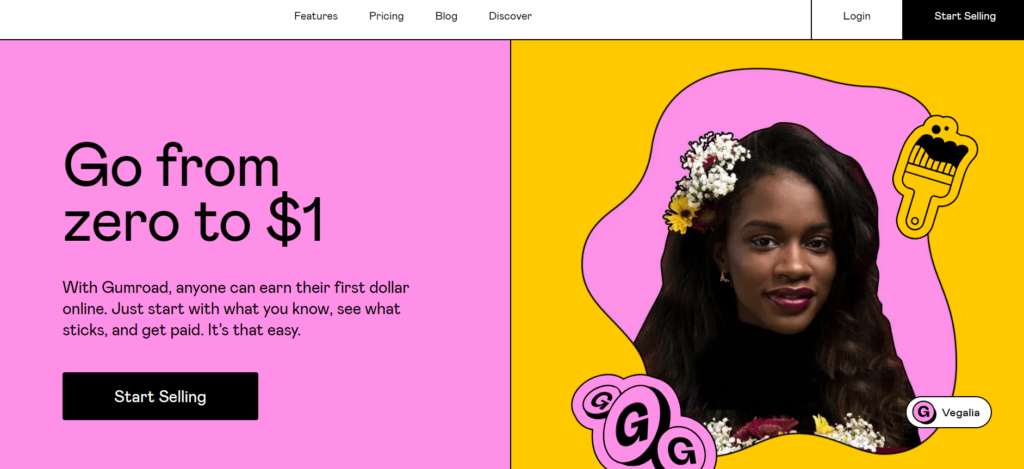
Gumroad is an incredibly popular platform for selling digital stuff because it’s easy, secure, and simple to use. It’s the bridge that connects your product to the people who want it.
Whether it’s albums, books, games, movies, online courses, or more, Gumroad lets you upload your creations onto their servers, set a price, and you’re good to go. Their handy Gumroad widget makes it super simple to add Gumroad to your website, making selling your digital goods a breeze.
You can use Gumroad alongside your website, but many folks use it on their own, promoting their products on social media. It’s kind of like Sellfy, another platform for selling digital stuff even if you don’t have a website.
- Pros: Free to use.
- Unlimited space
- Cons: Not suitable for online course
3. Shopify
Best option for big online stores

Thinking about going big into online selling? Shopify’s your guy. It’s a top-notch platform for selling pretty much anything – digital stuff, physical things, you name it. It’s like a one-stop shop for e-commerce.
Shopify isn’t just about selling; it’s got you covered for social selling too. You get easy ways for people to shop by simply clicking to buy.
The cool part? You’ve got a bunch of extra apps you can connect to Shopify to get the full e-commerce experience.
With Shopify, you won’t have to worry about the techie stuff. They handle everything, from hosting your site to keeping it secure and updated. No need to buy hosting or a domain – they take care of that for you.
There are plenty of apps that work with Shopify, but some might cost you. They offer great features that can make your store even better.
- Pros: Advanced features
- Cons: A Bit Expensive for newcomers
4. Thinkific
Best for online course
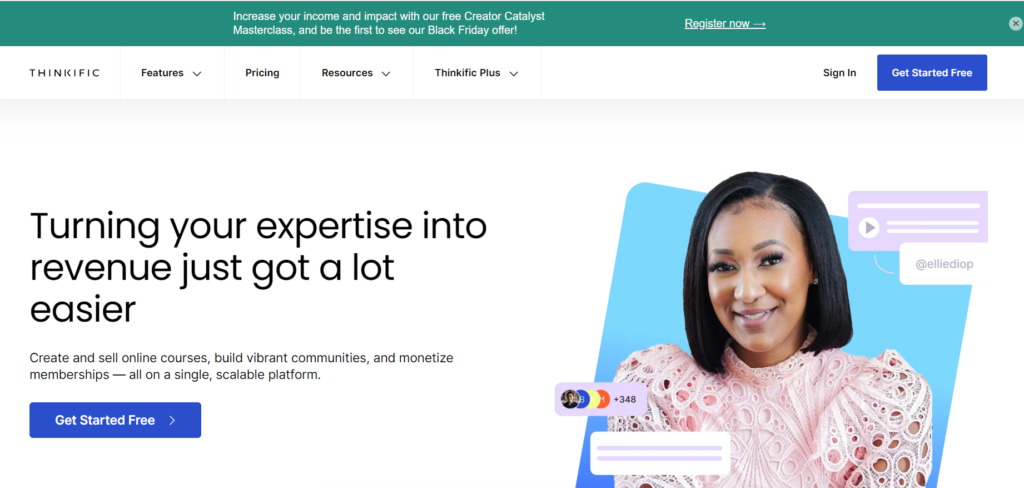
Thinkific is a robust online course platform empowering individuals and businesses to create, market, and sell their digital courses.
With user-friendly tools, it allows seamless course creation, customization, and delivery.
Offering diverse multimedia options for content, quizzes, and discussion forums, it caters to various teaching styles. Thinkific facilitates branding, enabling instructors to personalize their course sites.
Its marketing features aid in reaching wider audiences through email campaigns, affiliates, and integrations with other platforms.
With secure payment processing and analytics, instructors gain insights into student engagement and performance.
Thinkific stands out for its versatility, supporting creators in sharing knowledge across diverse fields with an intuitive, all-in-one platform.
- Pros: Great for online course sellers
- Cons: Not suitable for digital products
5. Stanstore

Best for content creators
Stan Store is a platform that transforms your social media ‘link-in-bio’ section into an easy-to-use online store, turning your followers into customers.
Stanstore provides an alternative for creators looking to monetize without relying on big brands.
Frustrated with the limitations and high fees on platforms , Hu aimed to make online earning straightforward.
Stan Store allows creators to set up their own store, personalize its look, and showcase their products to a larger audience.
It’s an all-in-one solution for hosting, selling, and managing transactions, simplifying the process of making money online.
- Pros: No commission fee
- Cons: NO free tier
6. Sellfy
Best for both digital product and physical product
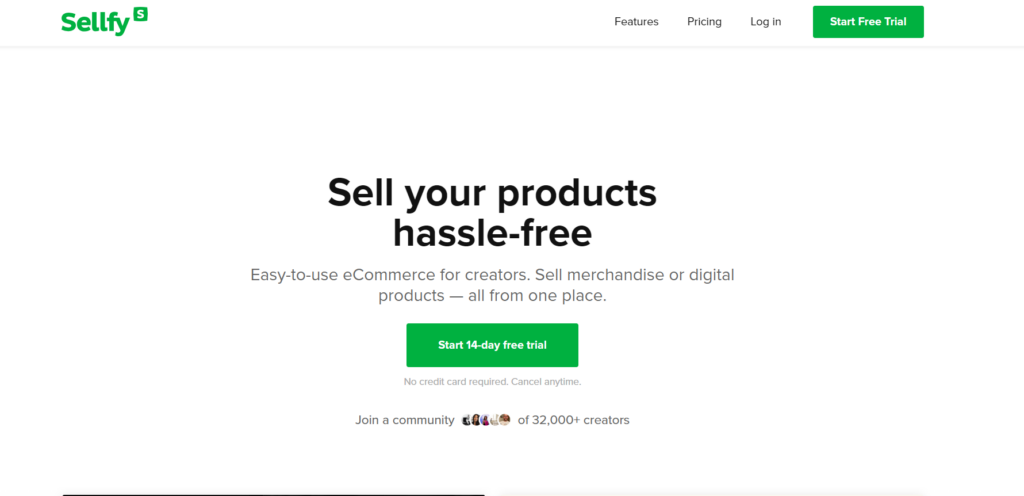
Sellfy presents a user-friendly platform for vending various products, be it digital or physical. It encompasses a range of offerings including digital and physical goods, print-on-demand items, and an array of other merchandise.
One distinctive aspect of Sellfy is its integrated marketing tools, which not only monitor store performance but also establish incentives to encourage increased customer spending.
- Pros: No commission fee
- Cons: the higher you make, the higher you pay for the subscription
7. Podia
Best Platform for selling your membership
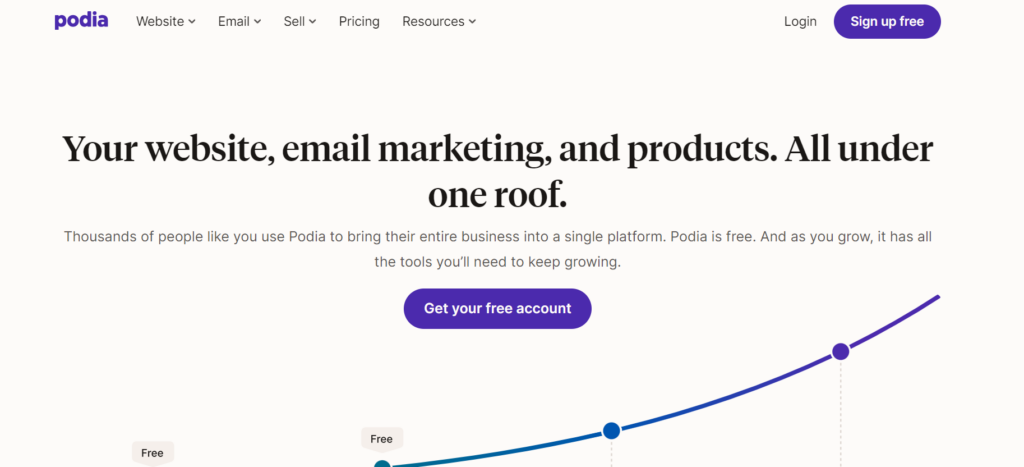
Podia offers a swift way to launch your project without the hassle of starting entirely from square one.
This user-friendly platform is perfect for online courses, downloads, memberships, and webinars.
Podia isn’t just about that – it also integrates email marketing, a website builder, and customer communication through messaging.
Pros: Free tier
Cons: Lots of documentation to learn.
8. kajabi
Best platform for selling online courses and webinars
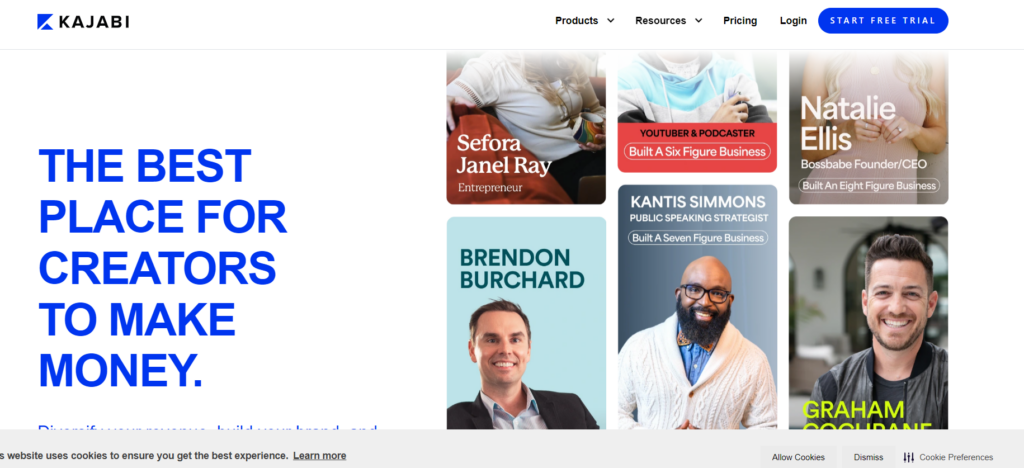
Kajabi has carved a niche by focusing on empowering creators in the online course space.
It offers a comprehensive array of features tailored specifically for easy and effective course creation from start to finish.
What sets Kajabi apart is not just its dedication to course creation, but also its supplementary tools.
These include a user-friendly website builder, efficient product launch resources, and specialized webinar funnels.
These integrated tools collectively streamline the management of an online course business.
- Pros: best for selling online course
- Cons: too expensive for a start
9. SendOwl
Easy-to-use platform
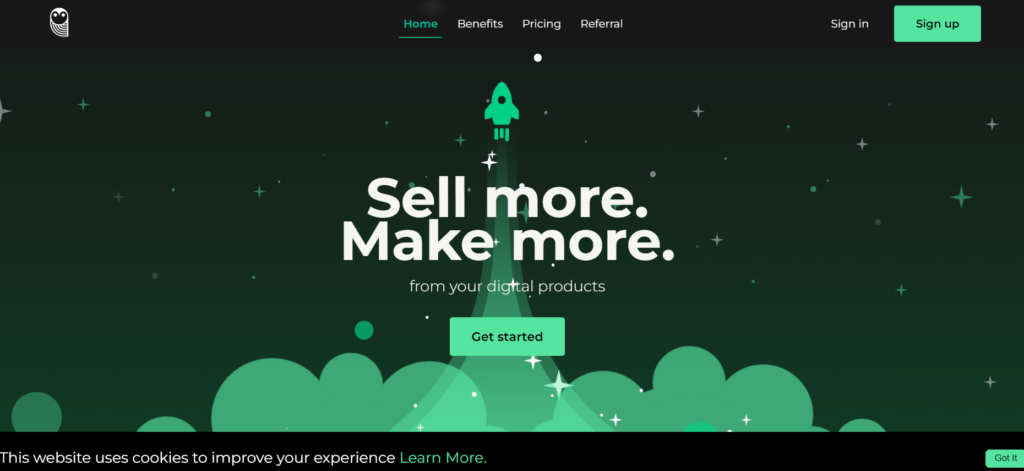
Creators and entrepreneurs use SendOwl for sending and automated delivery of a wide array of digital products.
This encompasses downloads, subscriptions, e-books, video and audio files, PDFs, designs, access codes, online courses, and an assortment of other digital offerings.
- Pros: Easy to use
- Cons: not suitable for online courses and membership
10. Nas.io
Best for monetising your community and membership

Nas.io simplifies community management and monetization effortlessly. It’s a cost-free platform catering to those aiming to: Establish a Paid Membership Business, Sell a course, Manage a Paid Chat group (WhatsApp and Telegram)
Pros: Free to use
Cons: Not suitable for online courses.





